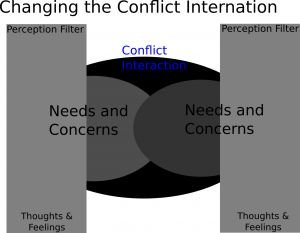What is mediation in general?
In general, mediation is a guided process to assist in resolving your dispute without a judge’s involvement. In mediation intermediary neutral party helps the conflicting parties have a conversation to jointly resolve any concerns.
Dispute: Coming to mediation parties have disagreements, concerns, incidents, things they want changed. Moreover, mediation could go father addressing systematic causes and underlying conflicts.
What is mediation in its legal aspects?
Mediation is a non-binding process using a neutral third party to come into agreement. If prior to or during a mediation session, it becomes appropriate to discuss the possibility of combining mediation with binding arbitration, the mediator shall disclose that relationship to the parties may be altered and they would need to choose another neutral for the arbitration procedure.
A mediator needs to be sure that the parties have fully understood the terms of any settlement if appropriate, and advise the parties to seek legal or other specialized advice.
In private mediation cases that are not court-ordered, parties should arrive to the mediation process willing and able to engage in assisted negotiation. If mediator perceives that a party is being forced into by a family member or representative, the mediator might consider to end the process.
Court-ordered mediation might carry an aspect of involuntariness into the process. A mediator shall assure that despite the fact that parties have been ordered to attend the mediation, a settlement can be made only if both parties mutually satisfied.
A mediator shall disclose any information that can lead a party to question the mediator’s impartiality. A mediator may proceed with the process unless a party objects to continuing service. If a conflict of interest exists that placed doubt on the integrity of the process, a mediator should withdraw.
What is mediation ’s main characteristic?
It is voluntarily, private and confidential self-determination making decision focusing on needs and interests of the parties
What is mediation from the psychological point of view?

After the mediator understands the content, she/he structures the process, addresses communication’s challenges between parties and shift the conflict into negotiation dynamic. It means that the communication between parties should be changing from competitive, adversarial and positional to collaborative, cooperative, interest based .
Mediation focusing on resolution: transition from the past to the future, inventing options for mutual gain following objective criteria.
What is mediation in family law?
Family Mediation is a process in which a family mediator facilitates the resolution of a divorce or other family dispute
Family mediation includes the following issues:
- Child custody and visitation
- Child support
- Property division
- Spousal support
The most sensitive and high conflict issue of the divorce is child custody and visitation. For the sake of the children, the parents should have a serious consideration to mediate because parents know better than judge what is in the best interest of their children. According to statistic, if the parent goes through long litigation of this issue, a negative effect of the children proceed more often. What why in 1981 in California the judicial system established Mandatory (Court Ordered) Mediation.
Under family Code 3170, if there is any contested issues to establish or modify permanent or temporarily child custody and visitation order, the patents MUST go to court ordered mediation.
What is mediation’s impact on the judge’s decision is the most frequently asked question regarding Mandatory mediation. The answer is depending what county is court proceeding. Some Counties are so called non-recommended counties, some counties are recommended.
In recommended counties the judge will place into consideration what is mediator recommendes. In non-recommended the recommendation would not have as much value as in the recommended. However, as mentioned above the parties must attend court ordered mandatory mediation.
The parties will be dealing with determination sole/joint legal custody, sole or joint physical custody, co-parenting or parallel parenting, child visitation plan and other issues.
Criteria for granting custody – best interest of the child. Under Family Code 3080 there is a presumption that joint custody is in the best interest if the parent agree.




